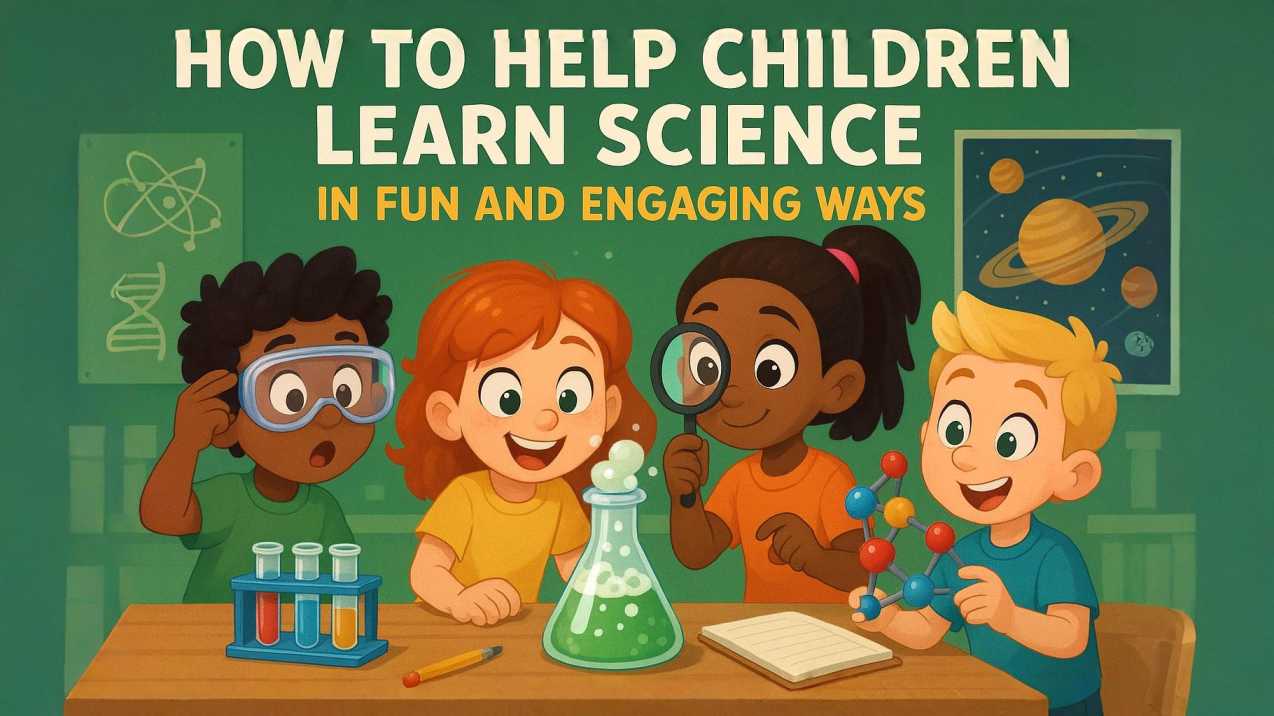Loading advertisement...
02-07-2025

Science education isn't just about memorizing formulas or scoring high marks—it’s about developing curiosity, creativity, and critical thinking. When children enjoy the learning process, they retain more knowledge and are more likely to explore advanced topics in the future.
Fun learning = deeper understanding + long-term interest.
Encourage your child to be a question-asker. Instead of explaining everything immediately, ask questions that spark thinking:
This makes them feel like little scientists discovering answers on their own.
You don’t need fancy tools to do science at home. Some more creative experiments:
| Activity | Concepts Learned |
|---|---|
| Lava lamp with oil and food color | Density and chemical reactions |
| Shadow tracing with sunlight | Light and earth rotation |
| Making slime or play dough | Chemistry and mixtures |
| Rainbow walking water experiment | Capillary action, color mixing |
| Ice fishing with salt and string | Melting point, freezing |
Tip: Involve children in cooking—measuring, heating, mixing. Cooking is full of scientific concepts!
Let your child pretend to be a scientist, astronaut, or marine biologist. Use costumes, props, or toys:
Try these YouTube Channels, Podcasts, and Apps for visual and auditory learners:
| Resource | Type | Best For |
|---|---|---|
| SciShow Kids | YouTube | Curious science facts |
| Peekaboo Kidz | YouTube | Animated science for kids |
| Tumble Science Podcast | Podcast | Real stories of science discovery |
| Exploratorium | Website | Hands-on science ideas |
| Mystery Science | Website | Ready-to-use science lessons |
Make science storytime exciting! These books blend storytelling and education:
| Book Title | Theme |
|---|---|
| “Rosie Revere, Engineer” | Invention & engineering |
| “What If You Had Animal Teeth?” | Biology and adaptation |
| “Ocean: A Visual Encyclopedia” | Marine life and oceans |
| “Baby Loves Aerospace Engineering” | Physics for toddlers |
Children are naturally drawn to the outdoors. Use nature to teach:
Even young children can understand basic steps:
If you're a teacher:
If you're a parent:
Never dismiss a “weird” question. Every question is a doorway to learning. Say:
“That’s a great question—let’s find out together.”
“I don’t know, but we can look it up!”
When children feel safe to wonder, they stay curious.
| What To Do | Why It Works |
|---|---|
| Use daily life to teach concepts | Real-life connection makes learning stick |
| Add fun experiments and play | Encourages active participation |
| Explore science media and books | Supports different learning styles |
| Involve teachers and classmates | Builds teamwork and confidence |
| Let them lead with their curiosity | Fosters independent thinking |
Children don't need to become scientists—but they should grow up thinking like one.
By making science a fun and natural part of life, you nurture problem-solving, curiosity, and confidence.
✅ Stay connected with Skool Guru for more educational tips, exam strategies, and academic guidance.
📞 Need help? Contact our mentors today!
Visit: www.skoolguru.in